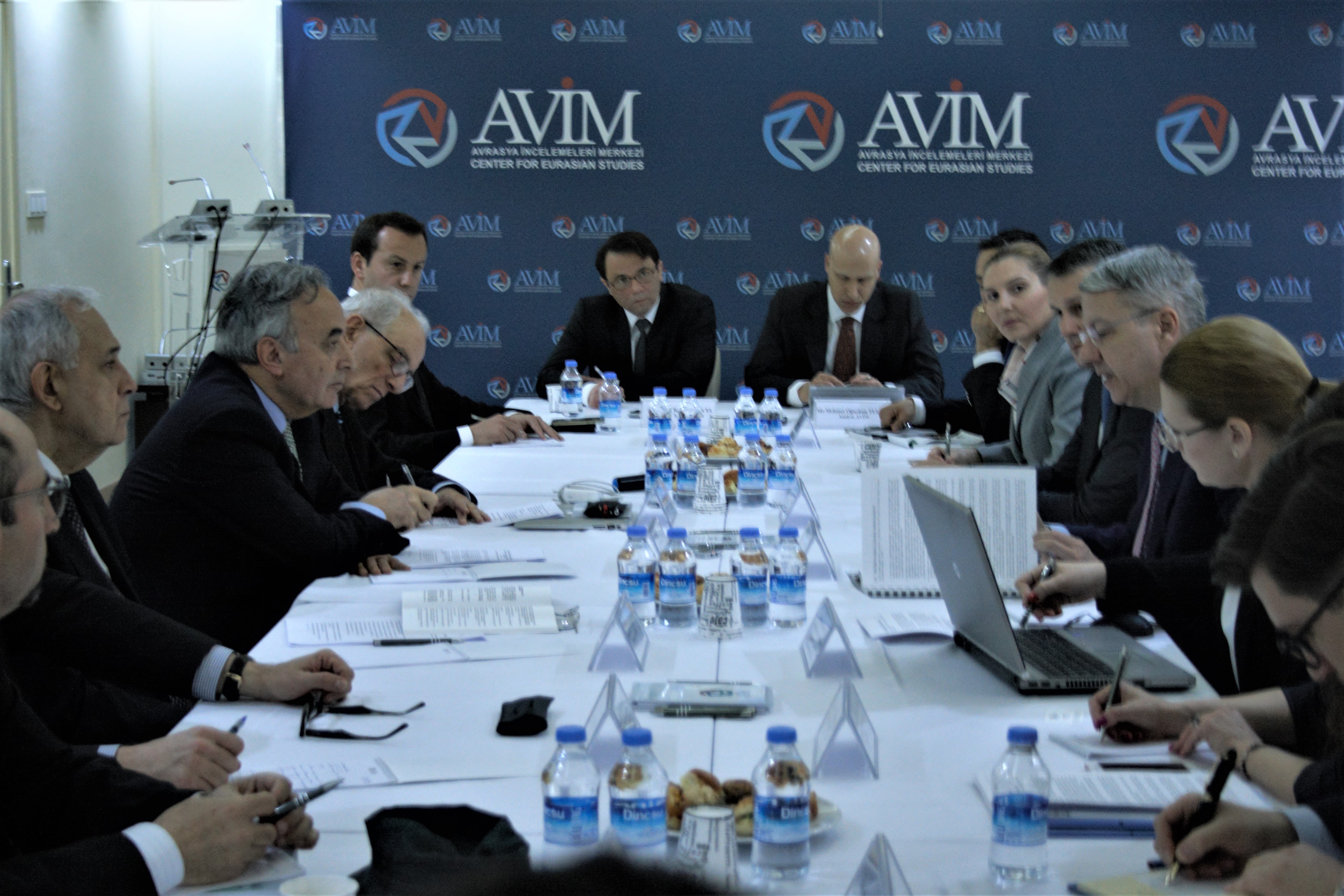Download PDF :


Center for Eurasian Studies (AVİM) in cooperation with the Embassy of Romania hosted H.E. George Ciamba, Secretary of State of the Ministry of Foreign Affairs of Romania together with the Ambassador of Romania in Ankara and his delegation on April 21.
Romanian high level diplomats, Turkish academics and AVİM staff held a roundtable discussion titled “Wider Black Sea Region: Current Stakes and Future Perspectives”. The participants discussed security and economic concerns in the Black Sea region. In this respect, it was mentioned in the discussion that the recent couple of years has witnessed economic integration goals being supplanted by security considerations in the Black Sea region. At the same time, the participants agreed that the Black Sea Economic Cooperation (BSEC), a regional project meant to bring all sides involved in the Black Sea region together, has not been functioning as it was meant to and analyzed why BSEC has not been functioning properly.
Participants touched upon the challenges derived from the changing security environment in the Black Sea region and emerging conventional and unconventional security threats in the region and beyond. The environmental pollution in the Black Sea and cyber security threats were listed among serious problems that should not be neglected.
The importance of preserving the balance via cooperation and adopting defensive policies -without provoking any other actors- were stressed by some of the participants. In that sense, exercises conducted under the NATO umbrella, successful security roles played by and commitments of Romania and Turkey -together with other countries- on the security of the South Eastern flank of NATO were welcomed.
The need for greater cooperation, not only in the field of security but also in the field of economy was emphasized with a reminder that collaborative approach rather than creating a competitive environment will have beneficial outcomes.
Finally, Montreux Convention, laying out the regulations concerning the Turkish Straits, was interpreted as a crucial outcome of the compromise made by all relevant actors in the Black Sea region and beyond. Even though the latest developments in the Black Sea region has tested the existing arrangement, the participants agreed that it is the current legal basis laid out by the Convention that plays a balancing and stabilizing role in the entire region. The Convention was described as successfully isolating the Black Sea from the instabilities and conflicts of the other regions of the world.
All the above-mentioned issues put the region on the focus of many actors and regional projects, considering the fact that Black Sea is attributed importance not just by the littoral states, but also by actors outside this region. As the concept of “Wider Black Sea” covers various actors with different policy preferences, the region has the global role of being the link among other regions such as the Middle East, the Caucasus, the Caspian, and Europe. It also presents transit corridors connecting the global south to north and west to east.
Concluding remarks at the roundtable covered mainly the lack of second-track diplomacy, the absence of a platform to promote cooperation among scholars of the littoral states of the Black Sea, and the necessity to focus on the problems blocking the well-functioning of BSEC and overcome them in order to actualize the potential of the Black Sea region.





























